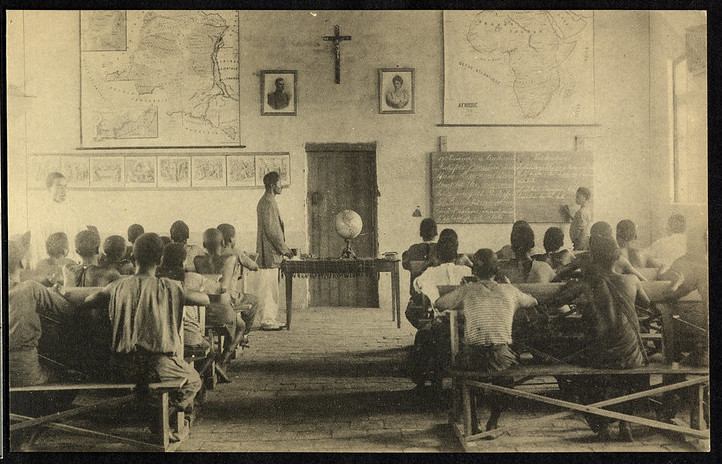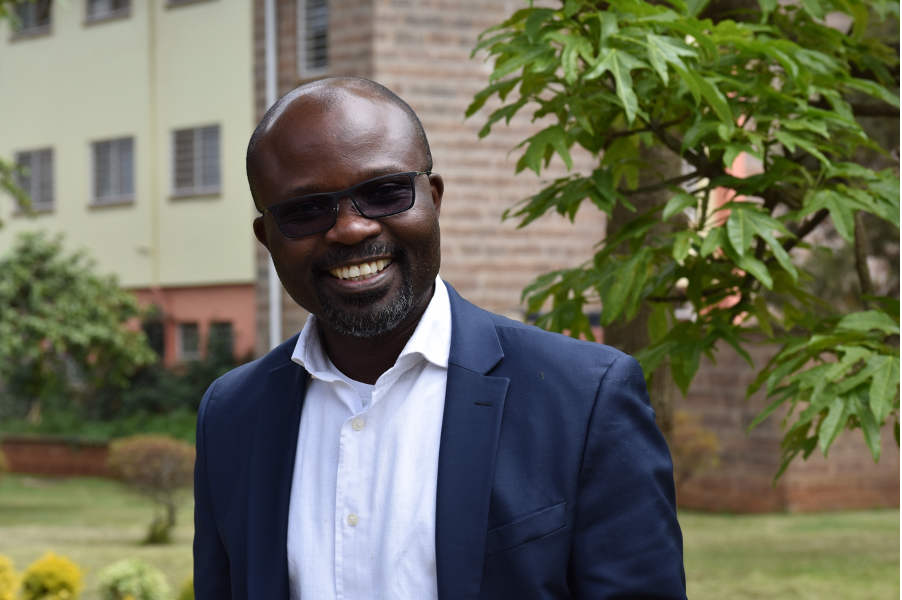
Introduction
Giulia Chamedes’s A Twentieth-Century Crusade: The Vatican’s Battle to Remake Christian Europe has helped me answer some lingering questions. I now understand not only the Church’s silence on some critical political issues, but also the culture within the Church that flattens its internal voice. Yet, interpreting the political history and the diplomacy of the Vatican through Chamedes’s contribution, it occurs to me that the Church’s prudence, which at times can border on pusillanimity, represents an attitude that allows, from the Church’s perspective—though that perspective is certainly open to scrutiny—“both [the good and the evil to] grow together until the harvest” (Matthew 13:30). Arguably, a realist survival propensity has led the Church to avoid confrontation with fascist regimes that not only have capabilities to harm her self-interest but also are an expression of the human imperfection. Chamedes’s analysis allows me to confidently make this inference.
Prior to reading this book, for instance, I was surprised at the language used by Pope Leo XIII advising European missionaries going to evangelize Africa in the late 19th century. The pope refers to Africans as “savage peoples” who should “abandon the darkness of error for the brilliance of the light of the gospel” when encouraging European missionaries to help Africans “exchange their dullest customs with the politeness and the Christian civilization” (5).
Using the language of the day, and in spite of his good intention, the words of the man whose encyclical Rerum Novarum significantly shaped Catholic Social Teaching reinforced prevailing racist stereotypes against Africans and their cultures during the colonial period. In a correspondence with the Superior General of the Scheut Fathers in 1889, he argued, “You are without ignoring, dear Sons! Our ardent desire to see the savage peoples of Africa abandon the darkness of error for the brilliance of the light of the gospel and to exchange their dullest customs with the politeness and the Christian civilization.”[1] Whereas the Church institution is expected to be prophetic, bold, and ahead of its own time in facing certain worldly challenges, it sometimes simply speaks the dominant language of the day. Yet, I was even more appalled to see that the Belgian Catholic missionaries turned a blind eye to the generalized systematic violence and abuses in the Congo Free State under King Leopold II’s colonial rule, an attitude of indifference that seems incongruous with the ideals of the Gospel and the social concern of the pope.[2]
Initially, I believed that the nationalism of the Belgian missionaries could sufficiently account for their silence vis-à-vis the colonial evil. As Ruth Slade Reardon notes, “The Catholic mission pursued a policy of private representation rather than public criticism—since their situation vis-à-vis the State was considerably more delicate than that of the Protestants in view of the subsidies and State help which they were receiving. King Leopold II did all that he could to use them in combating the [Protestant] propagandists who were attacking the State regime” (87). Yet, unlike the Catholics, the Protestant missionaries initiated, organized, and got actively involved in international campaigns to denounce the colonial brutalities against the human rights of Africans.
A Persistent Suspicion of and Conflict with Modernity
Catholicism has regarded modernity with suspicion, if not rejection, until quite recently. The modern period has constituted the Vatican’s worst nightmare, not only because it saw the demise of the Church’s power monopoly, but also because the Church had to share power with the modern state. Isaiah Berlin contends, for instance, that Machiavelli’s unsettling originality was that he uncovered the insoluble dilemma about two equally ultimate and sacred ends that stand in contradiction with each other: on the one hand, the otherworldly ultimate end of the Christian faith and, on the other hand, the this-worldly ultimate end of the state (69). The French Revolution in 1789 also antagonized the clergy and mobilized popular angst against the Church’s privileged position and its support of the existing oppressive world order. Given its association with the spirit of Protestantism since the modern period, the Catholic Church has perceived the rise of a modern culture that promotes civil liberties as malevolently motivated. It has also perceived this modern culture as promoting the use of science to discredit faith in God and undermine the authority of the Catholic Magisterium. The Catholic Church has only started partnering with modernity as early as 1962 with the Second Vatican Council, as Bill McSweeney’s important book, Roman Catholicism: The Search for Relevance shows.
Using the longstanding antagonizing perception of modernity, A Twentieth-Century Crusade shows why the Vatican has always been reluctant to engage structural and systemic problems of power politics. Chamedes contends that what has really mattered for the Church’s agenda was “to achieve a Christian state, wherein the Church would retain and expand its institutional privileges” (292). The book uncovers a pattern of behavior born from a mutually reinforcing dialectical competition for power and influence between Church and state. If any variation can then be observed in the Vatican’s foreign relations across time, this can be explained by the Church’s realist calculations and its capacity to negotiate treaties with the aim of advancing not only the spiritual ideals of the Gospel but also the quest for its institutional self-interest and temporal power. To say it slightly differently, since modernity began, the Church has perhaps always hoped that by securing advantageous relations with the temporal powers, it would concomitantly create the conditions to advance its own spiritual ideals.
As Patrick A. Heelan explains, “modern science” emerged when in the 16th century Galileo Galilei (1564–1642) and Johannes Kepler (1571–1630) challenged the religious belief that the celestial heavens were the home of the divine powers who ruled life on Earth. Through their invention of the telescope, they saw instead the Medicean planets of Jupiter, concluding that the heavens were just an extension of our terrestrial neighborhood. The Church rejected this faith-to-science paradigm shift as dangerously paving the way for secularism and atheism. Its response was to imprison scientists such as Galileo and Kepler (whose scientific innovations challenged the established dogma). However, the kind of control that the Church enjoyed prior to the advent of modernity had been lost. Subsequent policies would launch the Catholic Counter-Reformation (which included the promulgation of a new catechism), label Protestants as heretics, and condemn the errors of modernism among which it included liberalism, secularism, relativism, and atheism.
Philosophers and political thinkers such as Nicolas Machiavelli, Thomas Hobbes, John Locke, and Jean-Jacques Rousseau were at the forefront of modern philosophical and political thought. The principles they offered replaced the Catholic truth with secular self-evident truths. Included in the latter were the fundamental equality among all humans, the rule of scientific reason, the universal endowment of inalienable rights to self-preservation, freedom, and the pursuit of happiness. The Catholic Church lost its monopoly status as the mediator between humans and God to the Protestant Reformation, thus reducing papal authority when it came to secular matters.
The fear that modern ideals might lead to atheism shaped (and has survived in) the Vatican’s international politics to this day. This politics has consisted in signing concordats with states. As a diplomatic instrument, concordats are bilateral treaties that bind the Catholic Church to a nation-state so that they might work together under international law. Their fragility, however, is what lay behind the Church’s unwillingness to confront authoritarian and fascist regimes, such as the Third Reich, or the imperialism of colonial regimes in Africa.
The fear that modern ideals might lead to atheism shaped (and has survived in) the Vatican’s international politics to this day.
Quite unbelievably, it took until the Second Vatican Council in the mid-1960s to address the Church’s grievances and overcome its stubborn resistance to the spirit of modernity. Attempts were finally made to reconcile the Catholic faith with modern values. For instance, the Church finally stated in its closing message of the Second Vatican Council, addressed to the scientist community, that “we too are seekers after truth” and “your [scientific] truth is ours” (730–31; see also Patrick Heelan’s commentary on these lines).
The Vatican in the International System of States
The Catholic Church is among the few oldest institutions to have survived for more than two millennia. In the international anarchic system, the Church no longer holds the authority over truth it once did and thus finds itself having to negotiate with other powers. Yet, unlike nation-states, the Vatican has no military might to defend itself against threats. Popes, therefore, have had to rely on spiritual wisdom, political prudence, and accommodationist strategies to increase their moral influence.

Contrary to Pope Benedict XV after World War I, Pius XII showed little concern for the “Jewish Question” at the height of the Holocaust during World War II, and even in the subsequent years (Chamedes, 239). Instead of “speaking out against anti-Semitism and the murder of Jews in Eastern Europe, the pope refrained from public comment. He came the closest in an annual address to the College of Cardinals, when he spoke of victims who were ‘destined sometimes, even without guilt on their part, to exterminatory measures’” (Chamedes, 225). And when colonized African peoples requested his support in their fight for decolonization in the 1950s, he followed a similar strategy of non-commitment. The response was predictably lukewarm given the existing pattern of concordat diplomacy to collaborate with the state since collaborating with the sovereign authority of the state to get access to people is the most rational and strategic action that any political actor can take.
Until the Church’s aggiornamento, modern ideals, such as democracy, pluralism, diversity, equality, and freedom, remained marginal. And so were the colonial problems. Martinican poet Aimé Césaire’s indictment that colonization cannot be Christian—and is incompatible with philanthropy, or civilization, understood as a project meant to combat ignorance and to liberate peoples from tyrannies of all kinds including slavery—now strikes a note. It took liberal activists and Black intellectuals to call out the Vatican to support the decolonization movement. After much damage done to Africans and their cultures, post-Vatican II African theologians began a phase of rehabilitation. Wrestling with the ideal of inculturation, African liberation theology did not bother with the kind of Marxist analysis and concerns for economic poverty and redistribution encountered in Latin America. Instead, African liberation theology wanted to speak of God with a voice of its own after years of “anthropological pauperization” (a term coined by Engelbert Mveng) that robbed Africans not only their identities but also their soul and humanity in the process of converting them to Christianity.
Conclusion
If I may claim that Chamedes’s argument is that the Vatican sought to ensure Christian states and to retain influence and privileges, then my initial surprise at the Catholic missionaries’ failure to denounce atrocities perpetrated by colonial agents has been addressed. That’s the Vatican’s form of cultural realism.[3] Meanwhile, the Vatican’s foreign policy has avoided tackling political questions that could upset states or trigger a collision of interests with powerful rivals that are best turned into allies. The Church’s self-interests include its survival, respect for its own sovereignty, and opportunities to secure an advantageous relative position for collaboration with other states. By choosing to strategically stand in the shadow of powerful states, does the Church waste a chance to make a different kind of impact on world politics? As a localized state with global membership, can the Vatican legitimately support the radical ideals of the Gospel instead of accommodating authoritarian regimes for the sake of self-preservation? Far from living the radical idealism of Jesus that led him to the Cross, the Church as a realist and discerning body politic accepts that both the good and the evil will always coexist side by side in this imperfect world until the coming of God’s kingdom at the end of time.
[1] Jules Chomé, Indépendance Congolaise: Pacifique Conquête. (Bruxelles: Editions de Remarques Congolaises, 1960), 5 (I freely translate from French. The emphasis is mine)
[2] See Catherine Ann Cline, “The Church and the Movement for Congo Reform,” 48. While the colonial war in Algeria claimed another 1.5 million deaths, King Leopold II’s business arguably claimed more that 10 million lives in colonial Congo. See Adam Hochschild’s King Leopold’s Ghost: A Story of Greed, Terror, and Heroism in Colonial Africa and Ruth Mayer, Artificial Africas: Colonial Images in the Times of Globalization, 173.
[3] This is an analogical use of cultural realism in Johnston’s analysis of ideational influences on strategic choice. See Johnston, Alastair Iain, “Cultural Realism and Strategy in Maoist China,” in Peter J. Katzenstein (ed.), The Culture of National Security: Norms and Identity in World Politics. New York: Columbia University Press, 1996, pp.216-268.


Excellent, well written and informative essay. Thank-you!
Thank you so very much Dr. Patrick Nolan. Kind regards. Toussaint